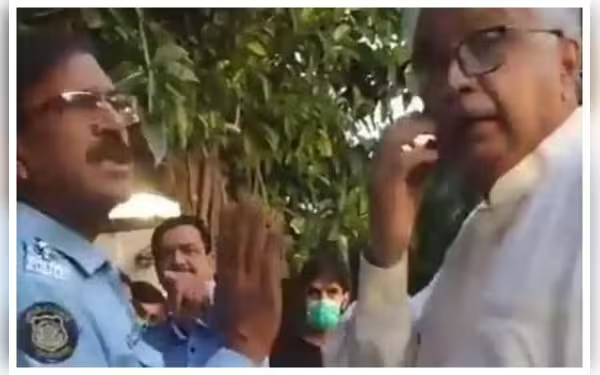Thursday, November 7, 2024 06:47 PM
PTI Lawyer Mustafeen Kazmi Granted Four-Day Police Custody
- Mustafeen Kazmi receives four-day remand from Anti-Terrorism Court.
- Protest outside Supreme Court leads to legal action against PTI lawyer.
- Authorities emphasize legal boundaries of protests in Pakistan.
 Image Credits: urdupoint
Image Credits: urdupointAnti-Terrorism Court grants police four-day custody of PTI lawyer Mustafeen Kazmi following a protest outside the Supreme Court.
In a significant development within Pakistan's political landscape, an Anti-Terrorism Court (ATC) has granted the police a four-day physical remand of Mustafeen Kazmi, a lawyer associated with the Pakistan Tehreek-e-Insaf (PTI) party. This decision comes in the wake of a protest that took place outside the Supreme Court premises, raising questions about the legal implications of such demonstrations in the country.
The case against Kazmi was presented before ATC Judge Tahir Abbas Sapra, where the Capital Police brought the accused into the courtroom. The protest, which has now led to legal action, was reportedly organized by PTI supporters, reflecting the party's ongoing tensions with the current political environment in Pakistan.
Protests have become a common form of expression in Pakistan, especially among political parties like PTI, which have faced numerous challenges in recent years. The legal ramifications of these protests often lead to arrests and remands, as seen in Kazmi's case. The involvement of an Anti-Terrorism Court indicates the seriousness with which the authorities are treating the situation, suggesting that the government is keen on maintaining order and addressing any potential threats to public safety.
As the situation unfolds, it is essential for citizens to understand the balance between the right to protest and the legal boundaries that govern such actions. While protests are a vital part of democratic expression, they must be conducted within the framework of the law to avoid legal repercussions. The case of Mustafeen Kazmi serves as a reminder of the complexities involved in political activism in Pakistan.
The four-day remand of Mustafeen Kazmi not only highlights the ongoing political tensions in Pakistan but also raises important questions about the rights of individuals to express dissent. As the legal proceedings continue, it will be crucial for both the authorities and the public to navigate these challenges thoughtfully, ensuring that the principles of justice and democracy are upheld.













